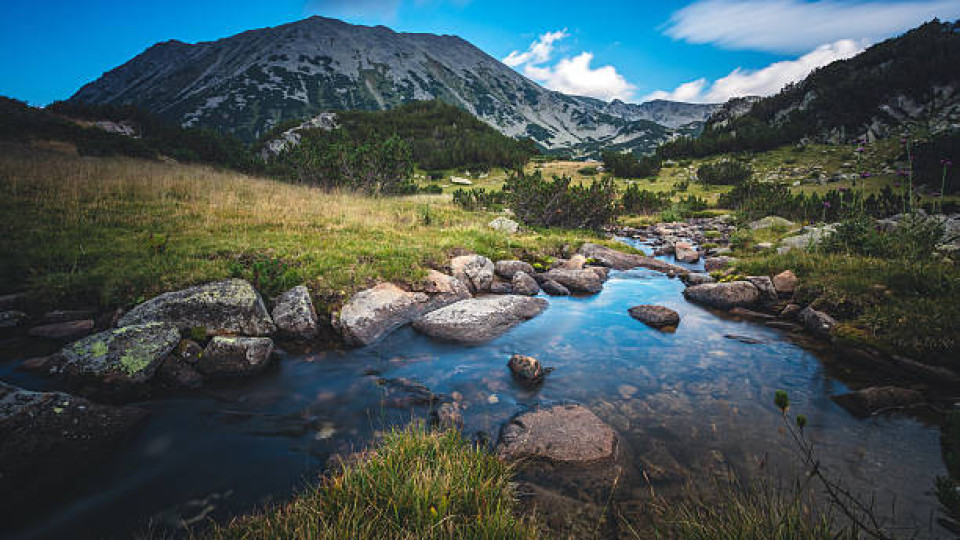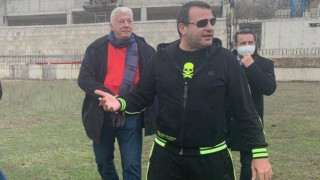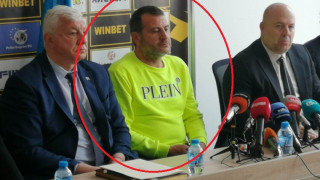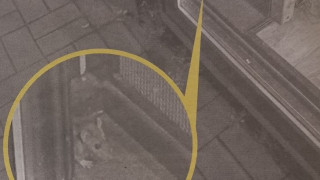The complex has not been subject to an ecological assessment, which is mandatory due to the cumulative effect and the formation of new habitats within its borders over the last 40 years
"Eco News"
Excavators, concrete trucks, trucks and other heavy equipment - this is what one of the most preserved and preserved bays on the Bulgarian Black Sea looks like today, and the credit goes to ecologist Toma Belev.
A year ago, the Ministry of Environment and Water, with a letter from the then Deputy Minister Toma Belev, gave the green light for the construction of Arcutino beach and the completion of the "Peace Flag" complex.
The editors got hold of photos that clearly show that a year later construction is in full swing in the complex.
They clearly show the new building materials and the scaffolding around the complex. You can also see the repaired and concreted surf, as well as the asphalted streets. Processes that require the use of heavy equipment - excavators, concrete trucks and trucks, whose traces are clearly visible.
What is the history of the Flag of Peace?
The concrete skeleton of the unfinished complex has been sitting in the protected area since 1984. That's when planning permission was granted to build the Flag of Peace complex in memory of Lyudmila Zhivkova. It is located on 668 acres among the forests and dunes of the Ropotamo reserve. From then until now, almost 40 years, the buildings have been collapsing from the salty wind and eroding.
Until last year.
How was the construction of Arcutino allowed a year ago?
On February 7, 2022 The Ministry of Environment and Water, with a letter signed by the Deputy. Minister Toma Belev, allows the construction and completion of the "Flag of Peace" complex.
With the letter number 48-00-902 of 07.02.2022. to RISV Burgas, deputy. Minister Belev does not object to carrying out "reconstruction and finishing of the frozen object of the Zname na Mira residential group".
It only mentions that "the construction of NEW objects cannot be allowed". It is important to say here that the unfinished complex already has a building fund of over 13,800 square meters of living space, which is given the green light to be reconstructed and finished, and all kinds of temporary buildings can be put in between.
Belev's positive opinion is a fact, although the complex is located in the Beglik Tash - Ropotamo protected area. There is also the buffer zone of the Ropotamo reserve. The white sand lily flower, which is a protected species, grows and blooms in the area in July. The sand dunes of Arcutino are also protected.
Within the boundaries of the complex, new habitats of animal and plant species have developed over the past 40 years.
The property also falls within the boundaries of a protected area of the Natura network for the protection of wild birds and habitats. Swifts, kestrels, swallows, cuckoos and many others nest there. All of them are protected by international and European conventions, agreements and directives.
Despite all this, Toma Belev does not give an opinion that the 40-year-old buildings should be removed and the area should remain a reserve, but his position is that the complex can be completed without the construction of new objects, since the investor does not need it anyway to construct new buildings in the presence of 13,815 sq. m of built-up area.
In accordance with the letter of the Eco-Ministry that they have no objections regarding the completion of the "Flag of Peace", Municipality of Sozopol on 21.02.2022. issued building permit number 28 for "Reconstruction and finishing/adaptation of a frozen site/ 6 buildings with a total built-up area of 13,815 square meters".
Thus, the permit issued by the Chief Architect of the Municipality of Sozopol, including schemes for "removal and extension of structural elements", actually allows the investor to complete and upgrade the six large buildings, to which auxiliary buildings will be added.
This is also shown by the skeletons, which are clearly visible in the photos.
The MoEW letter does not address the fact that flora and fauna have developed on this property for 40 years and there are many new habitats that will be affected. Migratory birds nest within its borders. The document does not answer what will happen to them.
An ecological assessment, which is mandatory due to the cumulative effect and the formation of new habitats within the boundaries of the complex over the last 40 years, has not been done either.
The case study also has a background
On November 2, 2021 the investor wrote a letter to the Association of Parks in Bulgaria (APB), whose chairman at the time was the former deputy. Minister of Environment and Water, Toma Belev, subsequently allowed the construction of Arkutino.
The letter requests the APB's opinion regarding "modernization and completion of existing building stock, without new construction".
In response, the Association of Parks in Bulgaria wrote that they were impressed by their "unique business organization" and believed that "if there is an opportunity for high-quality sea tourism in Bulgaria, it is right in the area around the borders of the municipalities of Primorsko and Sozopol".
And this letter was personally signed by Toma Belev.
It is not clear why the investor writes a letter to the Association of Parks in Bulgaria. There is no nature park in the protected area of Ropotamo, but there is a reserve. Nor is it within the competence of a private NGO, such as APB, to dispose of public state property. Moreover, the opinion of the APB has no legal value. The only explanation is that even then it was some sort of announcement.
There is also a problem with waste water
There is also a discrepancy between the construction permit and the MoEW agreed letter. According to the Eco-Ministry's letter, the canals must discharge to a treatment plant owned by the Duni complex. However, another option is given in the building permit. This discrepancy is likely to lead to the implementation of the easiest way - piping the dirty water into the sea, which will certainly pollute the Gulf of Arcutino and the mouth of Ropotamo.
From all of the above, it is clear that Bulgarian ecologists have clear double standards in environmental protection, especially when it comes to the reconstruction of the Bulgarian Black Sea coast.
As well as the fact that one of the few remaining wild corners along our coastline will be built on, and very soon, with the permission of the "great fighter" against reconstruction, Toma Belev.








Коментирай